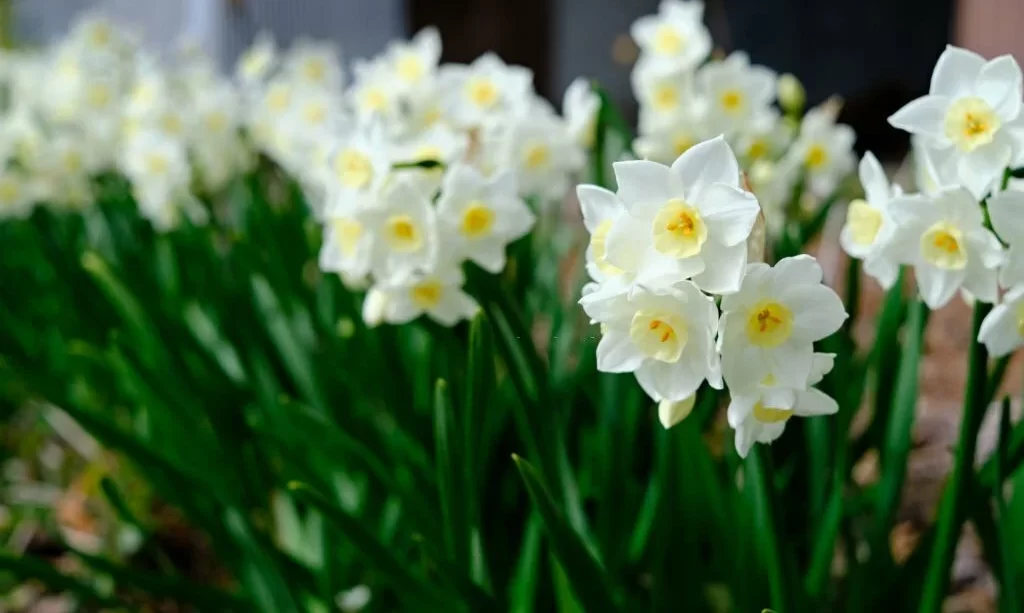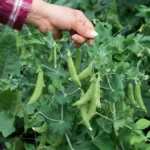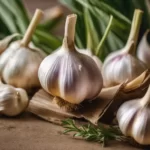Gardening enthusiasts often find themselves in a friendly yet persistent battle of wits with the furry inhabitants of their outdoor spaces – squirrels. These agile creatures are known for their penchant for nibbling on plants, uprooting bulbs, and pilfering bird feeders. The quest to maintain a squirrel-free garden can be a challenging one, but one strategy to consider is planting species that squirrels tend to dislike. In this exploration, we delve into the world of squirrel-resistant plants, those species that these critters are less likely to target. By understanding which plants these garden visitors are inclined to avoid, gardeners can work towards a more harmonious coexistence with the local wildlife.
Squirrel-Resistant Plants
Certain plant species possess characteristics that make them less appealing to squirrels. While no plant can guarantee absolute immunity from these determined foragers, some plants are more likely to be left undisturbed.
- Daffodils (Narcissus): Squirrels tend to avoid daffodils, thanks to the toxic compounds in their bulbs. These early spring bloomers add a burst of color to the garden and are less likely to fall victim to squirrel munching.
- Alliums (Garlic, Onions, and Chives): Alliums, with their pungent odor and strong taste, are usually left alone by squirrels. Planting them among more vulnerable species can act as a protective barrier.
- Lavender (Lavandula): The fragrant and aromatic qualities of lavender can deter squirrels. Its pleasant scent masks the aromas of other plants, making it a strategic addition to a squirrel-resistant garden.
- Freesia (Freesia spp.): These delicate and fragrant flowers are generally not on the squirrel menu. Freesias add elegance and color to the garden while deterring potential rodent visitors.
- Ferns (Various Species): Squirrels tend to avoid ferns, as they are not a preferred food source. Ferns offer lush, green foliage that can thrive in shaded areas.
It’s important to note that squirrel resistance varies by region and individual squirrel behavior. The effectiveness of these plants as deterrents can depend on local food sources and environmental conditions. Nevertheless, incorporating squirrel-resistant plants into your garden can be a valuable strategy to reduce squirrel-related damage and preserve the beauty of your outdoor space.
Scent and Taste Deterrents
Squirrels have a keen sense of smell and taste, which can be strategically employed to deter them from specific plants. Certain scents and tastes are unappealing to these critters, and incorporating them into your garden can help protect vulnerable species.
- Aromatic Herbs: Herbs like rosemary, thyme, and oregano have strong scents that squirrels find disagreeable. Planting these herbs in proximity to more enticing plants can create a natural barrier.
- Bitter-Tasting Plants: Squirrels tend to avoid plants with bitter tastes. One example is the Barberry (Berberis), which has a tart and bitter flavor. Including barberry bushes in your garden can act as a deterrent.
- Pungent Flowers: Flowers with pungent aromas, such as marigolds and dianthus, can make squirrels think twice before nibbling on nearby plants. The strong scents of these blooms can mask the fragrance of other, more appealing species.
Companion Planting Strategies
Companion planting involves strategically pairing plants to provide mutual benefits. In the context of deterring squirrels, companion planting can be a valuable strategy to protect vulnerable plants.
- Protective Borders: Plant squirrel-resistant species as borders or edge plantings around more susceptible plants. For instance, daffodils or alliums can serve as protective barriers to safeguard your delicate flowers.
- Diverse Plant Selection: Squirrels are less likely to be drawn to gardens with a diverse range of plants. By interspersing squirrel-resistant species with your preferred plants, you create an environment where squirrels may be less inclined to target any specific species.
- Interplanting with Alliums: Alliums, with their strong smell and taste, are excellent companions for many garden plants. Interplanting alliums with your vulnerable crops, such as tulips or crocuses, can help deter squirrels.
Companion planting not only deters squirrels but also promotes biodiversity and can enhance the overall health and resilience of your garden. By leveraging the power of scents, tastes, and strategic plant pairings, gardeners can work towards a garden that thrives in harmony with nature, even when faced with the challenges posed by these furry foragers.
Frequently Asked Questions
Do these strategies work for all squirrel species?
While many of these strategies are effective against common squirrel species, their success can vary depending on local squirrel behavior and the specific types of squirrels in your area. It’s essential to adapt your approach to your local conditions.
Are there any non-plant-based methods to deter squirrels?
Yes, there are various non-plant-based methods, including the use of squirrel-proof bird feeders, motion-activated sprinklers, and physical barriers like netting or fencing.
Can I use squirrel-resistant plants in a container garden?
Absolutely! Many squirrel-resistant plants are suitable for container gardening, providing a versatile solution to protect your plants from squirrel damage, even in limited spaces.
Conclusion
Creating a squirrel-resistant garden is an artful balance of plant selection, scents, tastes, and companion planting strategies. While squirrels can be persistent foragers, understanding which plants they tend to avoid and incorporating these species into your garden is a valuable step toward reducing squirrel-related damage.
Furthermore, using scents and tastes that deter these critters, such as aromatic herbs and bitter-tasting plants, can provide an added layer of protection. Companion planting, with a diverse range of species and protective borders, not only discourages squirrels but also enriches your garden’s biodiversity and resilience.
By integrating these strategies and remaining adaptable to local conditions, gardeners can enhance their ability to coexist harmoniously with squirrels and maintain the beauty and integrity of their outdoor spaces. Squirrel-resistant plants and companion planting offer a path to a thriving garden that welcomes both human and wildlife visitors in a balanced and harmonious environment.




